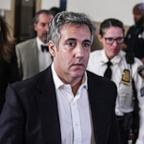FDA is failing to meet its food-safety inspection audit goals
— -- The Food and Drug Administration is failing to meet its goals for auditing food-safety inspections that states do on its behalf, FDA data show.
The FDA fell short of its goal in at least 17 of 39 states it paid to do inspections in the 2007-08 contract year, according to data the FDA gave USA TODAY. In five states, the FDA did no audits.
State agencies do half the FDA's food inspections. The FDA aims to audit 7% to help make sure states do good inspections.
The FDA's performance has improved. Its data for the 2006-07 year show its audit goal was unmet in 21 of 37 states. In eight states, no audits were done. In 1998, the FDA did no audits in 21 of 38 states, said the Health and Human Services Office of Inspector General in a 2000 report.
"We don't meet our target every year, but ... we're looking at continuous improvement," says Richard Barnes, FDA director of federal-state relations.
The quality of state inspections came under scrutiny this year during the salmonella outbreak traced to Peanut Corp. of America's plant in Georgia. The state's agriculture department found minor issues in 2007 and 2008 when it inspected the plant for the FDA. The FDA cited serious deficiencies when it inspected PCA this year.
The FDA exceeded its audit goal for Georgia in the 2006-07 contract year, but did only 10 of 16 target audits the next year.
The states that weren't audited in 2007-08 were Maryland, Wyoming, Iowa, Kansas and Nebraska.
No data were available for Texas, Arkansas, Oklahoma and Nevada. The year before, no audits occurred in Texas, which has one of the biggest FDA contracts. It should have had 48 audits for 685 inspections, the FDA says.
Audits may be missed due to:
•Other priorities. Major food-borne illness outbreaks absorb so many FDA and state staffers that audits get skipped, Barnes says.
•Scheduling challenges. Each FDA district office will soon have a person dedicated to overseeing state contracts. That will improve scheduling and follow-up, says Barnes. Audits typically involve an FDA auditor checking the state inspector's work.




